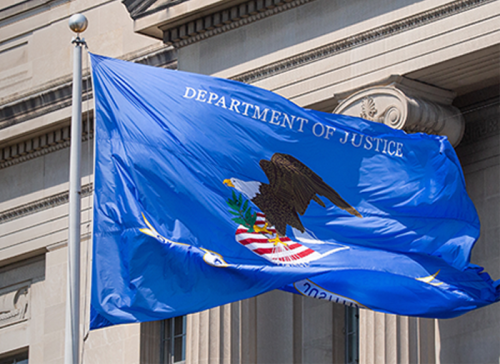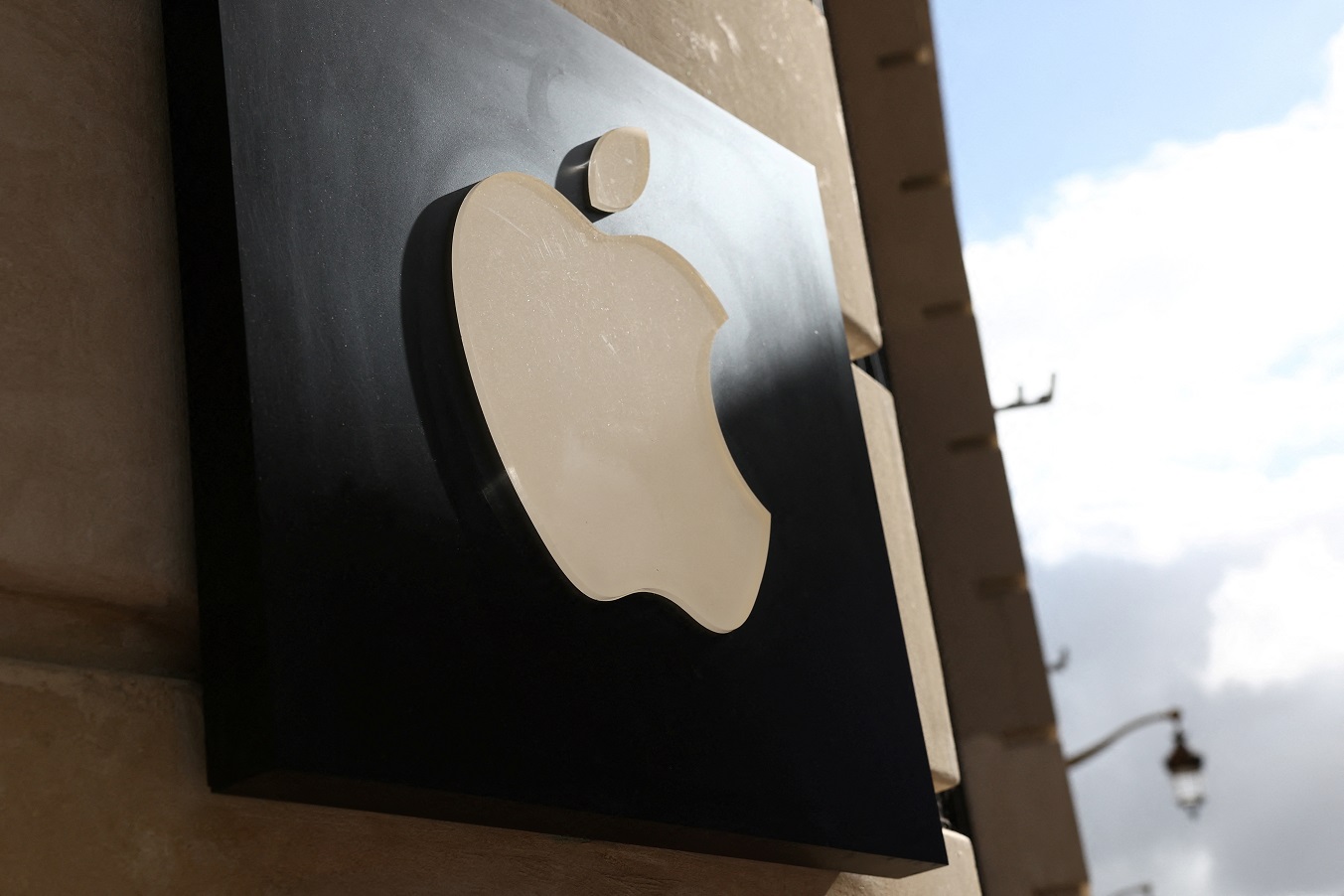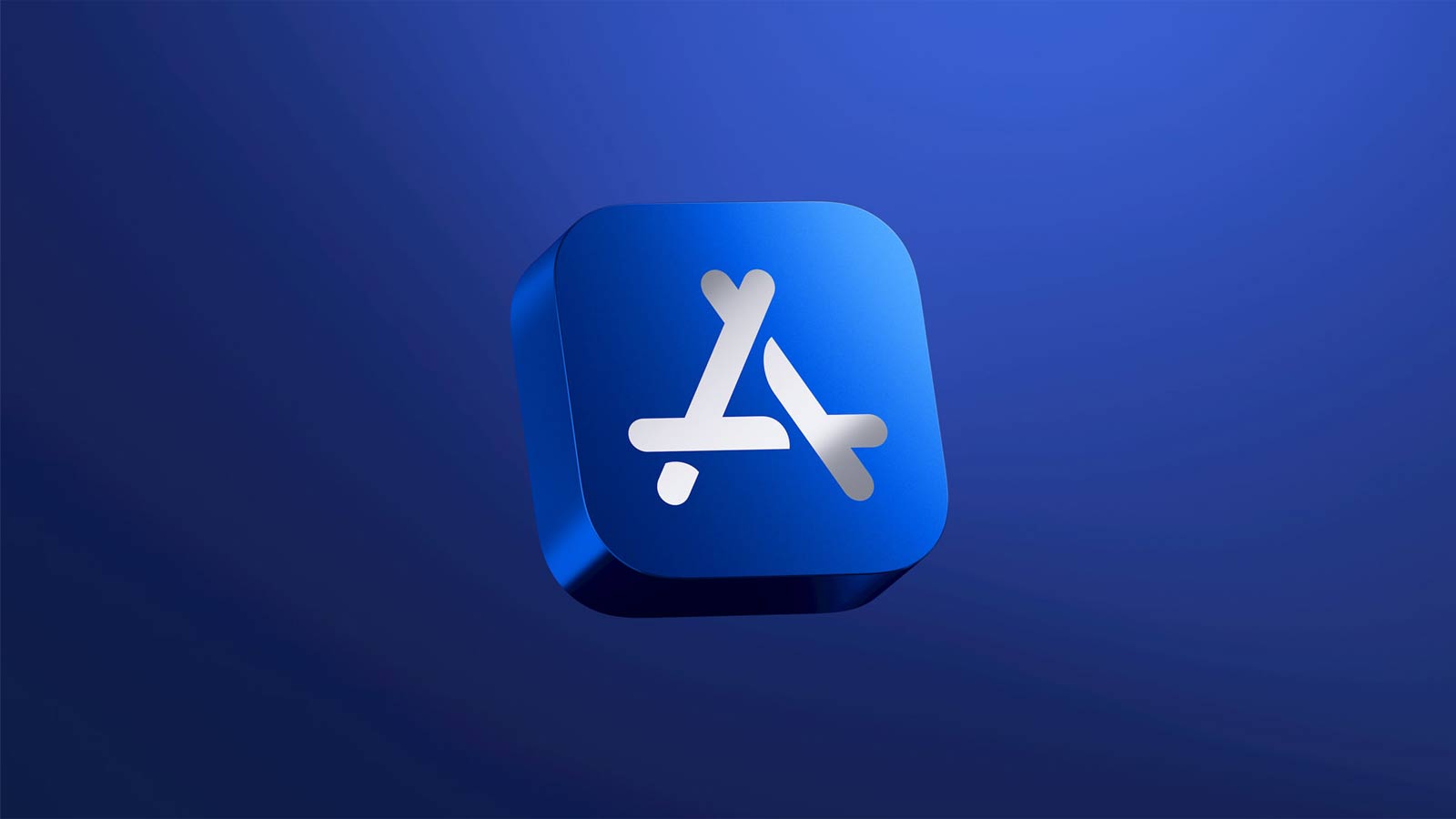In a significant legal development that could reshape the future of the smartphone market, Apple Inc. has asked a U.S. federal judge to dismiss the case brought by the Department of Justice (DOJ) accusing the tech giant of unlawfully dominating the smartphone market. This case is part of a growing trend of antitrust scrutiny against Big Tech companies, a trend that has increasingly become a bipartisan issue in the U.S. political landscape. Apple’s argument, however, is that the DOJ has failed to provide sufficient evidence of monopolistic practices, and the case should not proceed.
Here's ads banner inside a post

The Case Against Apple: What’s at Stake?
The case, filed in March 2024, claims that Apple has unlawfully wielded its market power to stifle competition in the smartphone industry. Prosecutors argue that Apple has engaged in practices that limit interoperability between its iPhone and third-party apps and devices. The alleged behavior includes imposing restrictions on app developers and blocking compatibility with devices like smartwatches, digital wallets, and messaging services that compete with Apple’s own offerings. The government asserts that these tactics not only harm consumers but also limit the potential for competition within the broader tech ecosystem.
:max_bytes(150000):strip_icc()/GettyImages-2158121053-ceea92fa77f540a29a0438aa25072f85.jpg)
Here's ads banner inside a post
At the heart of the DOJ’s claims is the idea that Apple has locked users into its ecosystem, making it difficult for them to switch to competing platforms without significant inconvenience or loss of functionality. By restricting access to certain APIs (application programming interfaces) and tools that third-party developers need to create apps and services, Apple is accused of leveraging its dominance to maintain a monopoly over the smartphone market.
Apple’s Defense: Monopolistic Power or Reasonable Business Strategy?
In its defense, Apple has strongly rejected the notion that it holds monopoly power over the smartphone market. The company argues that the DOJ’s claims are unsubstantiated and fail to meet the legal standards for monopoly power. Apple’s legal team, led by lawyer Devora Allon, argues that the government has not proven its case, and that the limitations Apple imposes on developers are simply part of a reasonable business strategy to ensure the security and quality of its products.

Here's ads banner inside a post
Apple also maintains that its closed ecosystem, while restrictive in some respects, fosters innovation and creates a better experience for consumers. By controlling both the hardware and software of the iPhone, Apple can ensure that its devices function seamlessly with each other, leading to a higher-quality user experience. Forcing Apple to open up its platform to third-party developers and devices, Apple argues, would undermine this control and could even slow down innovation across the tech industry.
Moreover, Apple contends that its actions—such as charging fees to app developers for using the App Store—are common industry practices and do not constitute monopolistic behavior. The company has pointed to similar cases, such as the Federal Trade Commission’s (FTC) failed attempt to block Meta’s acquisition of rival companies, to suggest that withholding access to proprietary technology should not automatically be seen as anti-competitive.
:max_bytes(150000):strip_icc()/the-us-federal-trade-commission--ftc--bu-71968930-e5e36febe53543aaa53329c6c17fc982.jpg)
The Growing Trend of Antitrust Scrutiny Against Big Tech
The Apple case is just one example in a broader movement toward holding Big Tech companies accountable for their market dominance. Antitrust scrutiny of tech giants has become a hallmark of both the Trump and Biden administrations, with numerous high-profile cases filed against leading players in the industry. For example, Google has faced charges related to its monopoly in online search, and Meta has been accused of stifling competition by acquiring smaller rivals. Amazon, too, is under investigation for its treatment of third-party sellers and its policies toward suppliers.

This bipartisan trend reflects increasing concern over the power of tech companies, whose influence extends far beyond the digital realm. From social media to e-commerce, these companies have become central to daily life for millions of people, prompting questions about their market behavior and whether they are using their power in ways that harm consumers and competition.
In the case of Apple, critics argue that the company’s practices hinder consumer choice and innovation, while Apple defenders argue that its market actions are justified by the need to maintain the quality and security of its devices.
How Will the Court Decide?
As the case unfolds, U.S. District Judge Julien Neals in Newark, New Jersey, will play a crucial role in determining whether the DOJ’s claims have enough merit to move forward. Apple has asked the judge to dismiss the case, arguing that the government has failed to show a plausible claim of monopoly power. Additionally, Apple has sought to limit the discovery process, which is the phase of the lawsuit where both sides exchange information and evidence. Apple’s lawyers argue that the case lacks the factual basis necessary for further proceedings.
If the judge agrees with Apple and dismisses the case, it could mark a significant victory for the tech giant and send a strong message about the limits of antitrust enforcement in the tech sector. However, if the case proceeds, it will likely become a landmark legal battle with profound implications for the future of the smartphone industry and the broader tech ecosystem.
The Bigger Picture: Implications for the Tech Industry
Whether or not the case is dismissed, the Apple lawsuit highlights the growing tension between Big Tech companies and regulators. At the heart of this tension is the question of how to balance innovation and competition in an industry that is constantly evolving. As companies like Apple, Google, and Amazon continue to expand their influence, questions about monopolistic practices will only become more pressing.

For Apple, the stakes are high. A ruling against the company could lead to significant changes in how it operates its App Store and interacts with third-party developers. It could also pave the way for greater regulatory scrutiny of Apple’s broader business practices, potentially limiting the company’s ability to exert control over its ecosystem.

On the other hand, if Apple prevails in this case, it could bolster the company’s argument that its business practices are legitimate and that regulators should be cautious in imposing restrictions on tech companies. This outcome would likely embolden other Big Tech firms facing similar antitrust challenges.
The Role of Politics in Antitrust Enforcement
One of the most notable aspects of this case is the bipartisan nature of the antitrust push against Big Tech. While the DOJ’s case against Apple was filed during President Joe Biden’s administration, the investigation into Apple’s practices began during the first term of President Donald Trump. This cross-party support for antitrust enforcement underscores the widespread concern about the power of tech giants and their influence on the economy and society.

The political backing for antitrust enforcement suggests that the issue is not just a matter of business regulation but also a matter of national interest. As technology continues to shape nearly every aspect of life, policymakers are increasingly concerned about how these companies are using their power and what steps can be taken to ensure a fair and competitive marketplace.
What’s Next for Apple and the Smartphone Market?
The Apple antitrust case is a pivotal moment in the ongoing battle between Big Tech and regulators. As both sides prepare for the next phase of the case, the outcome will have far-reaching consequences for Apple, its competitors, and the future of the smartphone market.
For now, Apple is fighting to have the case dismissed, arguing that its business practices are not monopolistic but are instead designed to protect consumers and foster innovation. On the other hand, the DOJ and its allies are pressing forward with their claim that Apple’s practices harm competition and limit consumer choice.

As the case progresses, it will likely continue to draw attention from both the tech industry and policymakers, highlighting the broader questions about the role of Big Tech in our lives and the need for effective regulatory oversight in a rapidly changing technological landscape. Whatever the outcome, the Apple case is sure to set a significant precedent for the future of antitrust law in the digital age.


